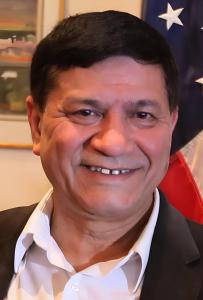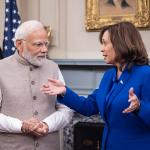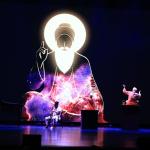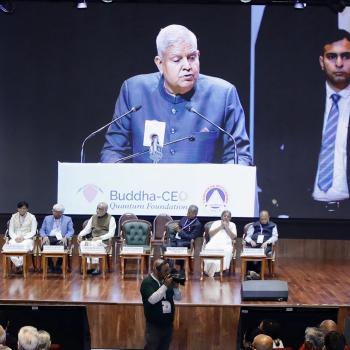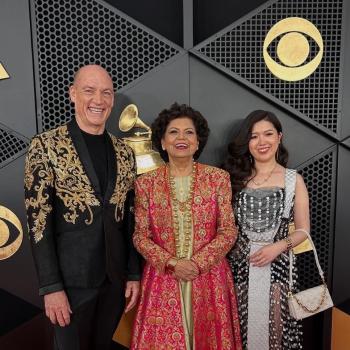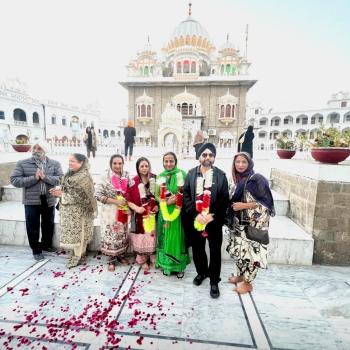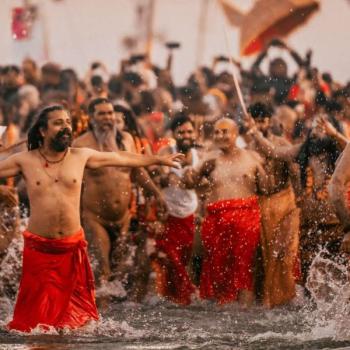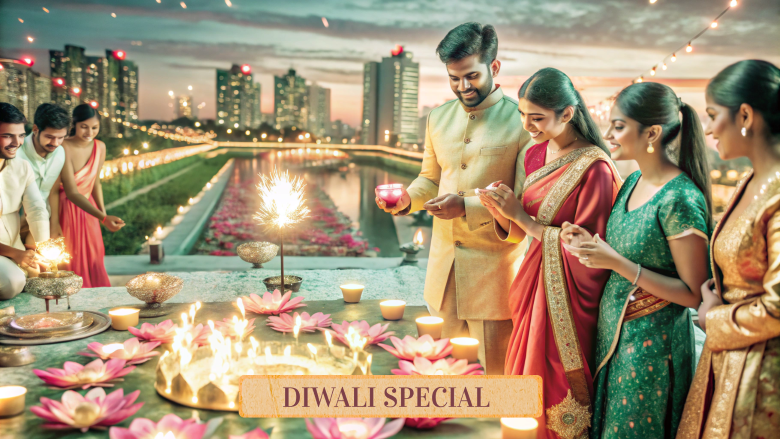
The White House celebrated Diwali on October 28, as in previous years. Pennsylvania announced Diwali as a public holiday. New York City schools have declared November 1 as a holiday to mark the Indian festival for the first time.
I also notice an ever-increasing number of Diwali melas (fairs) and public functions organized by the growing and successful Indian community in America. The festivities have a cultural tinge and assertion of Hindu and Indian identity.
Chhavi Arya Bhargava, a Virginia-based entrepreneur and author of A Kids Book About Diwali, ascribes the success of her new book to “Diwali building bridges across communities at a time when people are eager to connect with and understand cultural celebrations, especially as inclusivity becomes a stronger societal focus.”
Diwali is a pan-Indian festival. It is, for us, Christmas and New Year rolled into one. In addition to Hindus, it is celebrated by Jains, Buddhists, and Sikhs. Each faith has its own back story about why the festival is auspicious to them. Hindus mainly celebrate, by lighting lamps, the epic story of a triumphant Lord Rama returning to his kingdom, Ayodhya, after defeating the Demon Ravana who had abducted his wife, Sita. Deepavali, meaning a string of lights, is the original name of the festival.
Amid the festivities in America, my sense is that the deeper spirit of the Festival of Lights has taken a back seat. Invited dignitaries join in and speak in generalities about Diwali symbolizing the victory of light over darkness and good over evil.
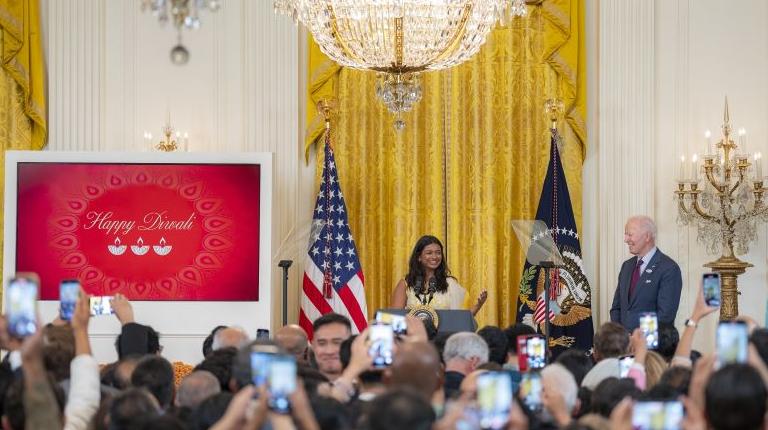
The ‘cultural Hindu’ question
‘Is being a cultural Hindu becoming the new normal?’
I posed this question to some prominent Hindus in the US and India. Their comments published on ALotusInTheMud.com in the run-up to Diwali give not a whiff of despair. They argue that the new trend is not a dilution of religion. The diaspora is, in fact, seeking a connection with the roots of their faith.
Ashok Vyas, a TV anchor and Hindu priest on Long Island, commented, “In Hinduism, philosophy and cultural traditions go hand in hand. The presence of various deities provides the devotee with a personal bond. Appreciating and sharing love and gratitude for the deities has given us multiple festivals. We Hindus are free to design how we celebrate and worship.”
Hari Kumar, an Indian filmmaker and author of occult books, clarified that Hinduism is not a monolithic religion but an umbrella term for a wide array of philosophies, traditions, and belief systems. “Its flexibility is reflected in the rise of cultural Hinduism, particularly among the diaspora and urban populations. Not new, it’s more visible today because of social media and the rise of shared Hindu pride.” He also finds festivals like Diwali and Navratri evolving into community-centric events focusing more on social bonding and heritage than on strict religious rituals.
Rajesh Sengamedu, an Advaita Vedanta follower and sustainability professional in the Bay Area, termed the festivities the visible, outer layer of Hinduism. The deeper layers relate to rituals before we delve deeper into understanding the philosophical layer of Vedanta and ‘All is One’. But he does see a movement toward “learning more about our history of temples and the subtle communication about our outlook toward life.”
For Dhawal Tank, who volunteered at the building project of Akshardham in Robbinsville, NJ, “Cultural Hindus are one spiritual experience away from having a spark ignited in them to seek deeper. People find this spark through meditation, yoga, and reading the Bhagavad Gita or the Puranas.”
Freedom and democratic ideals in Hinduism
Mamta Mishra, who worked for a charity in Toronto, takes pride in her faith that leaves you free to be a religious and/or a cultural Hindu, even an atheist. “As a Hindu, I don’t have a boss or book I need to be afraid of. This is freedom and democracy at its best.”
Narayani Ganesh, who was editor of the spiritual section Speaking Tree in The Times of India for a long time, said that Sanatana Dharma, now known as Hinduism, is shorn of ‘isms’. “A Hindu could be a believer, one who practices rituals, one who does not practice rituals, a temple-goer or not, a vegetarian or not”, and still be in good standing as a Hindu.
Shobit Arya, founder of Wisdom Tree publishing house in New Delhi, elaborates, “One may look down upon idol worship or form an eternal loving bond with God by feeding those little idols in their alcove-altar during puja, one may believe in many gods or one or none, Hinduism allows you to just be. At its very core is enshrined Ekam Sat Vipra Bahudha Vadanti (truth is one, the wise speak of it in many ways).”
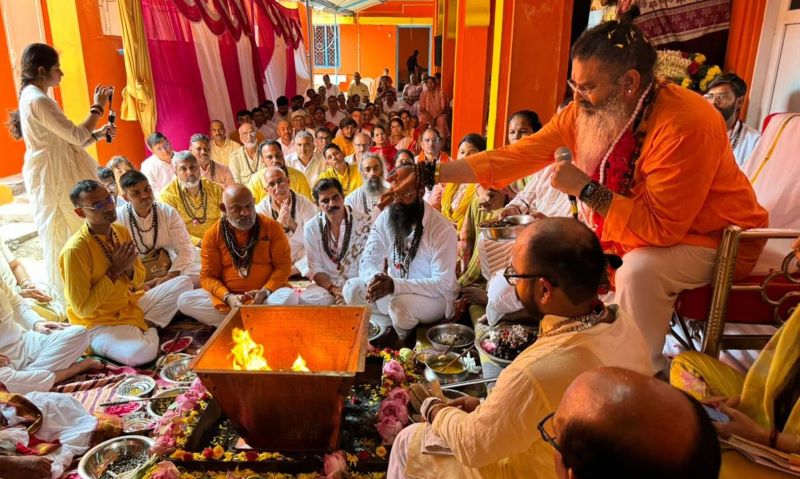
Rising above rituals
R.P. Jain, head of the Motilal Banarsidass publisher of Indology books, highlighted the spiritual aspect of Indic religions—Hinduism, Jainism, and Buddhism—and stated that their aim is “inner purification and transformation, not external rituals. Rituals, while prevalent, don’t define true spirituality.”
Navni Chawla, my India-based assistant editor at Lotus, called rites and rituals secondary to the true essence of dharma: living with integrity, truth, and compassion. “Living in dharma is maintaining purity of thought, intention, and action –– not just towards oneself but all beings.”
A Lotus reader offered this insight, which resonated with me. I paraphrase: Hinduism makes you seekers, not believers. It encourages you to seek the Truth, not believe in something handed down for generations. The scriptures and traditions aid in that search.
Professor P.K. Arya who has transitioned as Gurudev Aaryam, differed, though: “You cannot be spiritual without being religious. Because if spirituality is a flower, the seed of every spiritual flower is filled with religiosity.”
He also disliked the ‘cultural Hindu’ trend because the entertainment aspect of Hinduism is dominating rituals and spirituality. “This is because complexity has been created in simple rituals. Some acharyas and priests are responsible for this.”
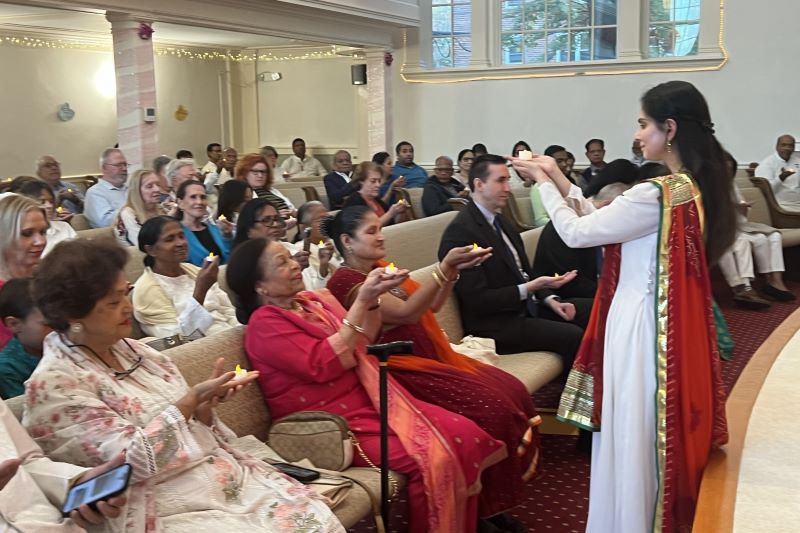
We are the light
While all the emailed comments I received helped fill in contours of my understanding of Hinduism, it was enlightening to listen in person to Sister Kala Iyengar expound on the esoteric meaning of Diwali. She is a prominent leader in New York of the Brahma Kumaris, a spiritual offshoot of Hinduism. At their Diwali celebration on October 27 at Global Harmony House in Great Neck, NY, she said lighting lamps reminds us that we are the light. “The light that is giving life to the body. That light is also called life force, spirit, or soul. Everything happens there. Everything has to change there for anything to change outside.”
She said Diwali is about bringing attention back to the essence, “That we are all living lights, and that light is joyful by nature. And all the virtues such as peace, love, hope, power, wisdom, benevolence, and courage are the energy of this light.”
To keep this light alive, Sister Kala emphasizes the importance of integrating spirituality into daily life. Meditation is one practical way to achieve that. She concluded by conducting a guided meditation for the multicultural audience to practice what she preached.
Founder and Editor of ALotusInTheMud.com, Parveen Chopra is a seasoned media professional specializing in wellness, personal growth, and spirituality. More about him here.


